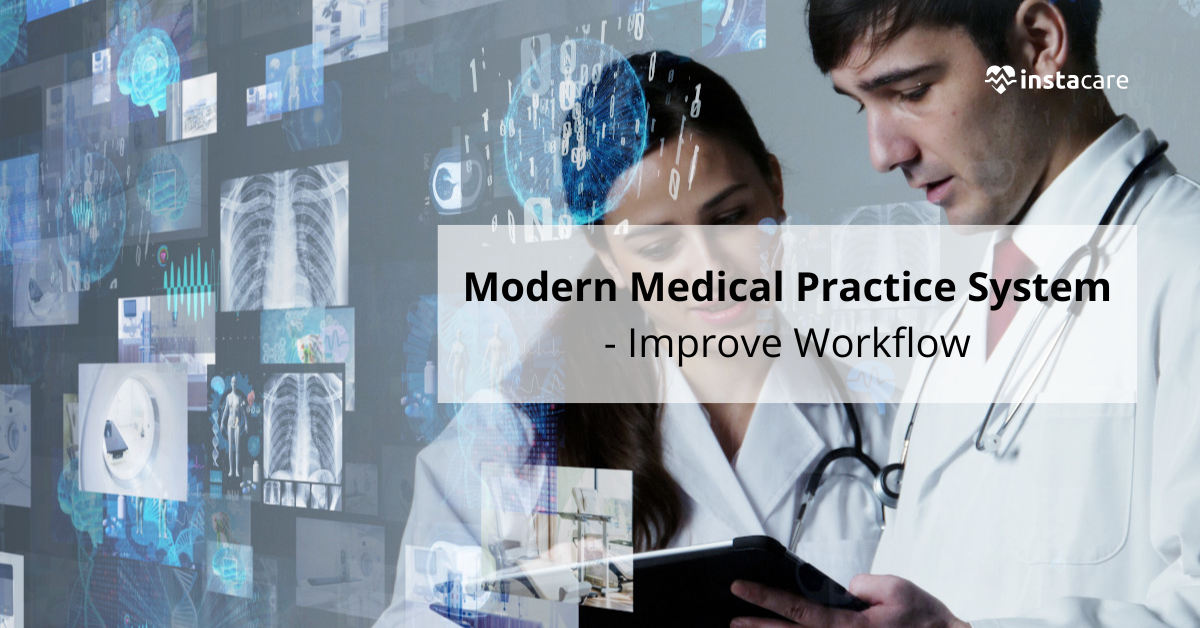Last updated on Tuesday, 8, April, 2025
Table of Contents
Modern Medical Practice System – Improve Workflow
Have you ever felt frustrated trying to navigate the complexities of modern medical practice systems? From endless paperwork and navigating insurance billing processes, it can feel like too much for even seasoned professionals. But an improved medical workflow system isn’t a pipe dream – successful doctors are leveraging technology every day to streamline operations and improve responses to their patients’ needs. In this blog post, we’ll discuss how improved integrated workflow solutions help facilitate faster patient care, reduce administrative overhead costs and ensure better quality healthcare across the board. Read on for tips on choosing an effective EHR system that streamlines your medical practice’s processes.
Overview of the Current Medical Practice System
The medical practice system is an intricate and highly regulated network that is designed to deliver high quality healthcare to patients. From managing appointments and medical records to providing diagnosis, treatment, and follow-up care, the medical practice system is responsible for ensuring that patients receive the best possible care. In recent years, healthcare has become increasingly complex, prompting the need for regulatory agencies and healthcare professionals to work together to ensure that the medical practice system is kept up-to-date and that it is able to meet the evolving medical needs of patients. While some challenges remain, the medical practice system has made great strides in improving healthcare delivery and enhancing patient outcomes.
Benefits of a Modernized Medical Practice System
In today’s fast-paced world, the importance of a modernized health-providing system cannot be overstated. The medical practice landscape is constantly evolving, and it’s essential for clinics to adopt new technologies and systems to stay competitive and offer the best possible care to patients. A modernized medical practice system comes with a plethora of benefits.
From streamlined patient registration and record-keeping to improved communication between healthcare providers, modern technology can significantly enhance the patient experience. Additionally, these systems also help doctors and nurses increase their efficiency and reduce the risk of errors. Ultimately, a modernized medical practice system can lead to better healthcare outcomes and happier, healthier patients.
How to Implement a Modernized Medical Practice System
In today’s fast-paced and ever-changing world, it’s more important than ever for healthcare providers to adopt modernized systems to improve patient care and streamline processes. Implementing a modernized healthcare practice system can be a game-changer, allowing for better communication among staff, reduced errors, increased efficiency, and improved patient outcomes.
However, the task of implementing such a system can seem daunting. With the right strategy and tools, though, it can be an achievable objective. By starting with a thorough assessment of current workflows and needs, identifying key stakeholders, and investing in the right technology, healthcare providers can successfully modernize their practice and provide better care for their patients.
View More: Streamline Your Medical Billing with Medical Billing Software
Streamlining Workflows with Automation and Digital Technologies
In the fast-paced world of healthcare technology, streamlining workflows is more important than ever before. With the ever-growing demand for accuracy and efficiency, automation and digital technologies have become the secret weapons in reducing costs while improving patient care. These technologies can automate medical tasks that are time-consuming, such as recording and updating patient data, managing medical images, and efficiently scheduling appointments.
Not only do these digital innovations speed up the medical workflow, but they also reduce the likelihood of errors and make the overall process more accurate and reliable. The days of manual processes and paper records are becoming a thing of the past as healthcare professionals are embracing the power of cutting-edge technology to streamline their workflows.
Improving Patient Care through Cloud-Based Systems
The healthcare industry has been rapidly evolving with advancements in technology, and one of the most promising developments is the use of digital healthcare solutions to improve patient outcomes. Cloud-based systems are at the forefront of this revolution, offering healthcare providers a flexible and secure way to store, access, and share patient data. With cloud-based systems, physicians and nurses can quickly access patient records, test results, and other critical information from any location, leading to faster diagnosis and treatment.
Not only do cloud-based systems improve efficiency, but they also enhance patient care with features like real-time data analysis, predictive analytics, and personalized treatment plans. By embracing the latest technology, providers can create an environment of greater collaboration and care that puts the patient at the center of every decision.
The Benefits of Enhanced Security in a Modernized Medical Practice System
In today’s digital age, medical practices are adopting advanced technology to enhance patient care and improve efficiency. However, with this modernization, there is also an increased risk of cyber-attacks, data breaches, and other security threats. Investing in enhanced security measures for your medical practice system is crucial to protect sensitive patient information and ensure the safety and trust of your patients. Robust security protocols not only safeguard confidential data but also help to mitigate the risks of financial losses and legal liabilities in the event of a breach. By prioritizing security in your medical practice system, you not only protect your practice but also provide peace of mind to your patients.
Conclusion
The modern medical practice system of today can be improved in many ways to create a more efficient workflow. Technology such as Electronic Health Records (EHRs) and Telemedicine can help streamline the flow of data and information; Practice Management Systems can help manage patient records, scheduling, billing and insurance; Patient Engagement systems can give patients convenient access to their health histories; Artificial Intelligence (AI) integrated into Electronic Medical Records (EMRs) can reduce paperwork associated with billing and coding and improve accuracy.
All these technologies have their own set of advantages, but only when used together in an integrated environment is real value realized. Healthcare providers must assess their current structure and plan for the future so they are able to provide superior patient care while fulfilling all regulatory requirements. With thoughtful planning and an understanding of all available options, maintaining a modern medical practice will prove invaluable.



